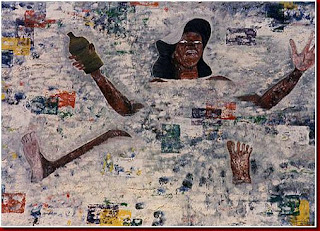
Sometimes, as part of taking care of ourselves, it becomes time to end certain relationships. Sometimes, it comes time to change the parameters of a particular relationship.
This is true in love, in friendships, with family, and on the job.
Endings and changes in relationships are not easy. But often, they are necessary.
Sometimes, we linger in relationships that are dead, out of fear of being alone or to postpone the inevitable grieving process that accompanies endings. Sometimes, we need to linger for a while, to prepare ourselves, to get strong and ready enough to handle the change.
If that is what we are doing, we can be gentle with ourselves. It is better to wait until that moment when it feels solid, clear, and consistent to act.
We will know. We will know. We can trust ourselves.
Knowing that a relationship is changing or is about to end is a difficult place to be in, especially when it is not yet time to act but we know the time is drawing near. It can be awkward and uncomfortable, as the lesson draws to a close. We may become impatient to put closure on it, but not yet feel empowered to do that. That's okay. The time is not yet right. Something important is still happening. When the time is right, we can trust that it will happen. We will receive the power and the ability to do what we need to do.
Ending relationships or changing the boundaries of a particular relationship is not easy. It requires courage and faith. It requires a willingness on our part to take care of ourselves and, sometimes, to stand-alone for a while.
Let go of fear. Understand that change is an important part of recovery. Love yourself enough to do what you need to do to take care of yourself, and find enough confidence to believe that you will love again.
We are never starting over. In recovery, we are moving forward in a perfectly planned progression of lessons. We will find ourselves with certain people - in love, family, friendships, and work - when we need to be with them. When the lesson has been mastered, we will move on. We will find ourselves in a new place, learning new lessons, with new people.
No, the lessons are not all painful. We will arrive at that place where we can learn, not from pain, but from joy and love.
Our needs will get met.
Today, I will accept where I am in my relationships, even if that place is awkward and uncomfortable. If I am in the midst of endings, I will face and accept my grief. God, help me trust that the path I am on has been perfectly and lovingly planned for me. Help me believe that my relationships are teaching me important lessons. Help me accept and be grateful for middles, endings, and new beginnings.
--You are reading from the book The Language of Letting Go. Melody Beattie ©1990, Hazelden Foundation. All rights reserved.
 Wait, and expect good things - for yourself and your loved ones.
Wait, and expect good things - for yourself and your loved ones.















